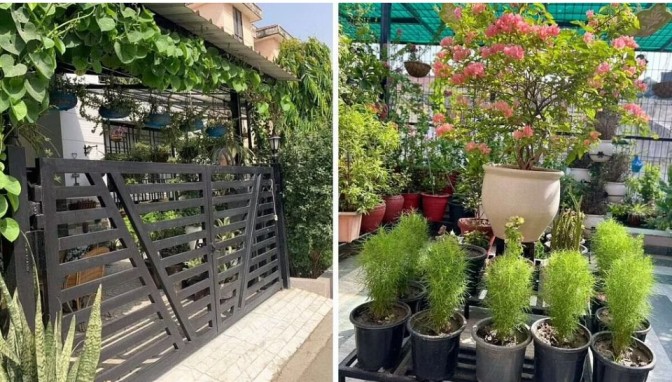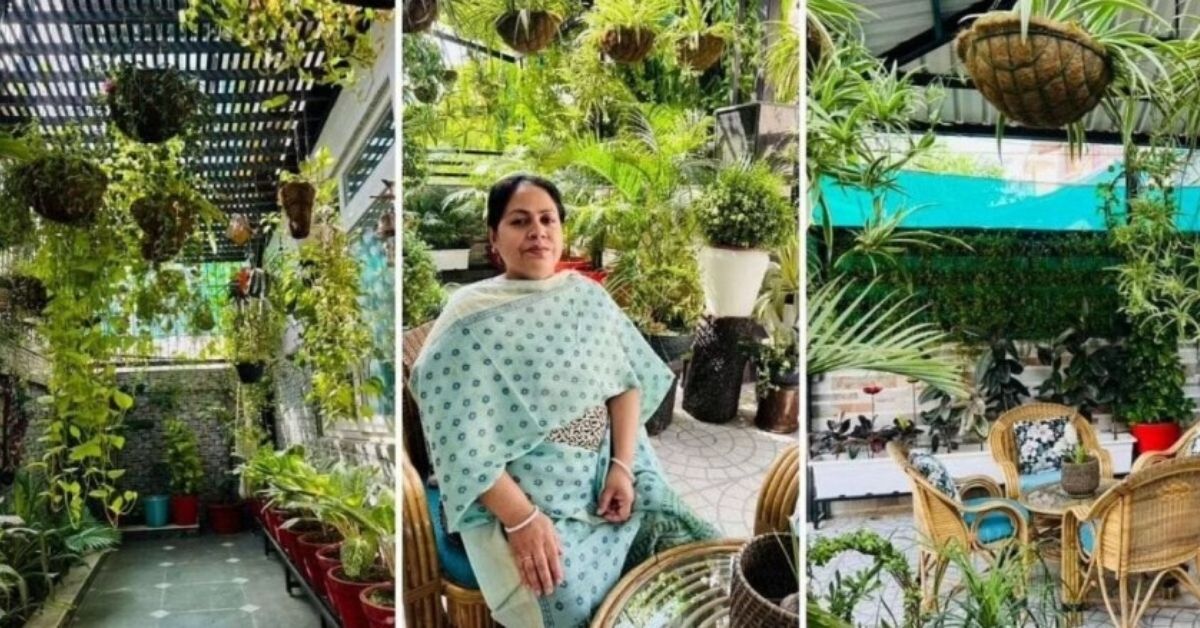Wherever you look in Alia Wasim’s house in Noida, you’ll find plants — climbing, creeping and growing in a variety of pots.
While the 50-year-old homemaker has lived in Noida for 20 years, she found that limited space in apartments put many restrictions on what she could and could not grow. “Despite having no space, I had planted around 15 saplings in my old house,” recalls the ‘plantaholic’.
So five years ago, when she moved to her current home, it proved to be a great opportunity — because there was almost no greenery around her, she could start afresh and grow whatever her heart desired.
Today, the house and its surroundings are filled with over 3,000 plants. There’s hardly any space that hasn’t been covered by lush greenery.

Alia was born and brought up in Kodaikanal, the picturesque hill station. She has been fond of growing plants since childhood, having spent much of it in a 28-acre garden house. With both her parents being gardening enthusiasts themselves, she lived amid an abundance of fruits, vegetables, and flowers.
“I was never used to heat and pollution. After shifting to the busy city, all I could think of was the shade and coolness of the trees back home. But I’ve worked hard to create this mini hill station in the city itself. Now, I say no to holidays and road trips, because this place itself is heaven,” she says.
Organic manure from household waste
Alia maintains an organic garden by using natural homemade manure only. She prepares various types of fertilisers and bio enzymes. She has also set up a compost pit for her kitchen waste and sometimes collects household waste from nearby fruit and egg sellers.
Alia says the compost manure quickens the growth of plants, no matter what it yields — fruits, flowers, or vegetables. Her garden is replete with chikoo, guava, pomegranate, peaches, and papayas, as well as seasonal flowers and foliage plants. Her vegetable repertoire includes brinjals, ladies’ fingers, and chilli for everyday use.
Alia’s husband owns a wire making factory in Noida, where he grows many plants as well. He uses the manure prepared at home for his plants too.
Their house has six spaces to exclusively grow Alia’s favourite plants — four balconies and two patios. Most of the items here are low-maintenance indoor plants. In addition to these, seven varieties of fruits are also grown on the terrace.
Out of all these, bougainvillaea is Alia’s favourite. She has more than 12 varieties, which adds to the charm of the house. She also receives help from a gardener, who works for two hours every day.
Alia says that due to the vast green cover, her house remains cool even during the scorching summer. There is always a wave of fresh air inside the house.
“My piece of advice to everyone is that try to plant at least one sapling in your house. You will feel proud about that decision later. It will make you and your home healthier and happier,’ she says.
Read this story in Hindi here.
Edited by Divya Sethu
If you found our stories insightful, informative, or even just enjoyable, we invite you to consider making a voluntary payment to support the work we do at The Better India. Your contribution helps us continue producing quality content that educates, inspires, and drives positive change.
Choose one of the payment options below for your contribution-
By paying for the stories you value, you directly contribute to sustaining our efforts focused on making a difference in the world. Together, let's ensure that impactful stories continue to be told and shared, enriching lives and communities alike.
Thank you for your support. Here are some frequently asked questions you might find helpful to know why you are contributing?

